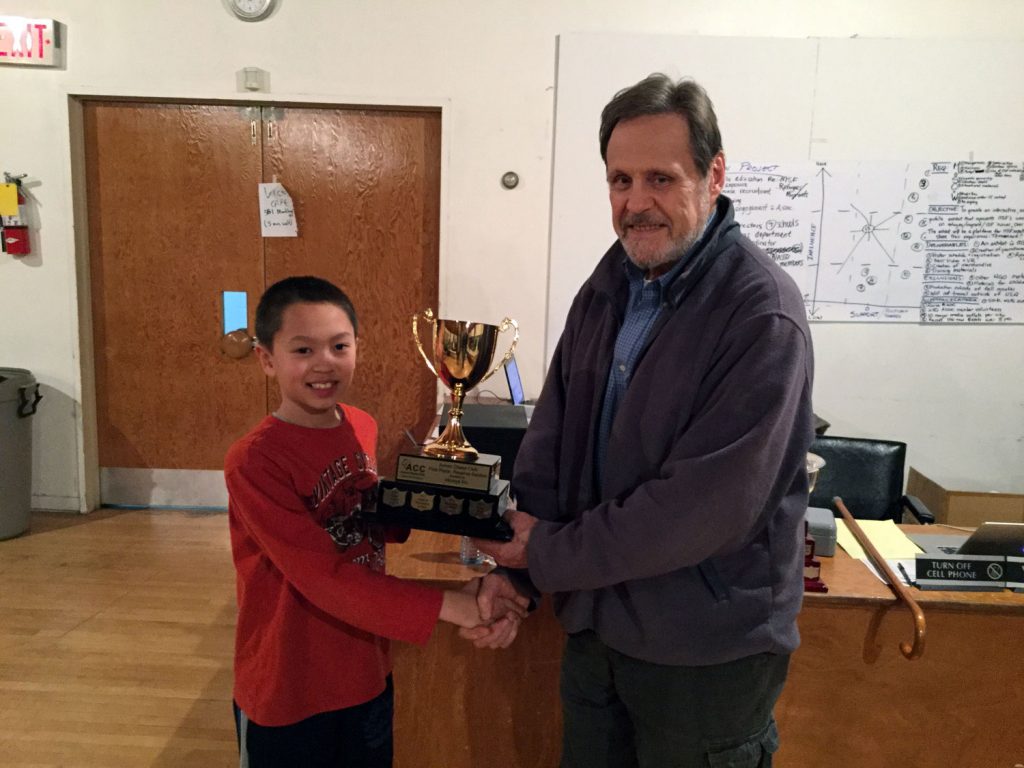The legacy of Ted Winick

COURTESY MARCUS WILKER, CHESS INSTITUTE
By Meribeth Deen
You might not have ever met Ted Winick, but you’ve likely walked by the Bloor Street, and formerly Bathurst Street, location of his business, the Spirit of Math, and his passion project, the Chess Institute of Canada. As they mourned his passing in early June, Winick’s friends and colleagues reflected on his dedication to community as well as his use of chess as a tool to bring people together and teach life’s most important lessons.
“When he was playing with a kid, he’d always ask, are you willing to take responsibility for that move?” recalls his old friend and former city councillor Joe Mihevc. “Ted’s pedagogy and perspective of life all boiled down to what happened on the chess board: use your brain, take responsibility, and find a strategic way around the obstacles you encounter, because there are bound to be obstacles.”
As Marcus Wilker, the current director of operations at the Chess Institute of Canada recalls, Winick didn’t play in tournaments, didn’t actively try to improve his game, and wasn’t known for his skill as a player.
“He was great at welcoming people, he’d sit down and play with anyone,” says Wilker. “As Ted’s wife, Heidi, can confirm, he’d always pack a chess board with him on vacations. He’d wait for a game and inevitably find one. He’d get to know whoever he played. For Ted, chess was all about relationships.”
Winick’s involvement with kids and chess started at his son’s school chess club, and from there he went on to put together the Annex Chess Club. Wilker says that in 2010 there were no chess clubs in downtown Toronto. A planning committee came together to organize a club, and Ted volunteered to find a space and run it.
“One of his strengths was definitely bringing people together,” says Wilker. “He had a special talent for giving people ownership and involvement of a project, and making the work really satisfying. We were all really inspired by Ted’s dedication.”
Wilker adds that Winick was also set on making the club as diverse as possible.
“He’d say – chess is for everyone!” recalls Wilker. “Although Toronto is diverse, people often tend to get segregated. Ted went out of his way to make the club as welcoming as possible to newcomers, even if they didn’t speak the same language. Chess was the common language. Of course, if someone showed up who didn’t speak much English, Ted would find someone who spoke their language.”
Today, the Annex Chess Club has 40–50 tournament players who meet every week, plus a dozen or so adults and children taking classes.
Mihevc also has fond memories of Winick’s entrepreneurial spirit.
“He could really hustle and muscle, but it was never for himself,” says Mihevc. “If I was hosting an event where I needed lots of tables and lots of people, I would call Ted. He never said no, and he’d bring an almost life-sized chess board. He’d play with anyone, any kid, that came along.”
Mihevc recalls that Winick had a way of getting other people on board with his ideas.
“His kids went to Oakwood Collegiate, and at one point there was some kind of class trip coming up. Ted wanted to do something to make sure every kid could afford to go, so he bought a giant crate of oranges and got people to sell them to raise money. This is how he got a local councillor to become his agent selling oranges. Really, a lot of what drove him was a strong sense of public good.”
Megan Shaw met Winick when she applied for a job with his Spirit of Math schools.
“I didn’t get the job, but I hit it off with Ted and his wife, Heidi,” says Shaw. “I was new to the city, and I found it big and intimidating. Everyone kind of kept to themselves, except Ted. Ted seemed to interact with everyone. I was really awe-struck by that.”
Later on, after Shaw had attempted to launch her own business, Ted stepped in to help out.
“He said, why not start a non-profit? And he helped me put the pieces in place to make that happen,” recalls Shaw. “I had just finished up my Bachelor of Education when I met him, so I knew so many administrators and teachers, but Ted was by far the person who was most passionate about education. He was in love with community, and he believed that education should be tied to community. I think that’s why the Chess Institute was so important to him. He loved math and strategy games, language and words – education for education’s sake.”
While his business, the Spirit of Math, works mostly with kids already considered to be high-achieving, the Chess Institute was created to connect with students from the tougher neighbourhoods and backgrounds, and teach the life skills required to improve their circumstances.
“He was never looking for the next grandmaster,” says Wilker. “And he’s left us with a clear sense of his mission, which we will work hard to carry forward now that he’s gone.”
